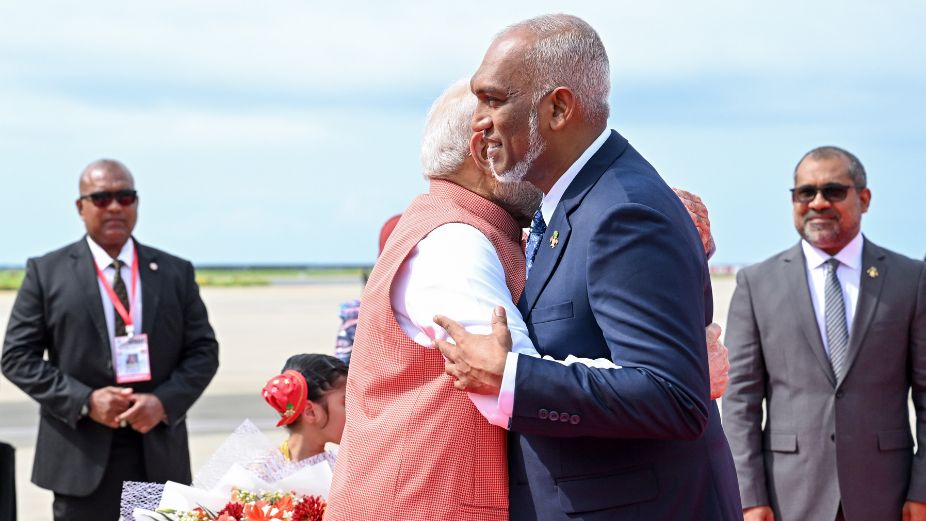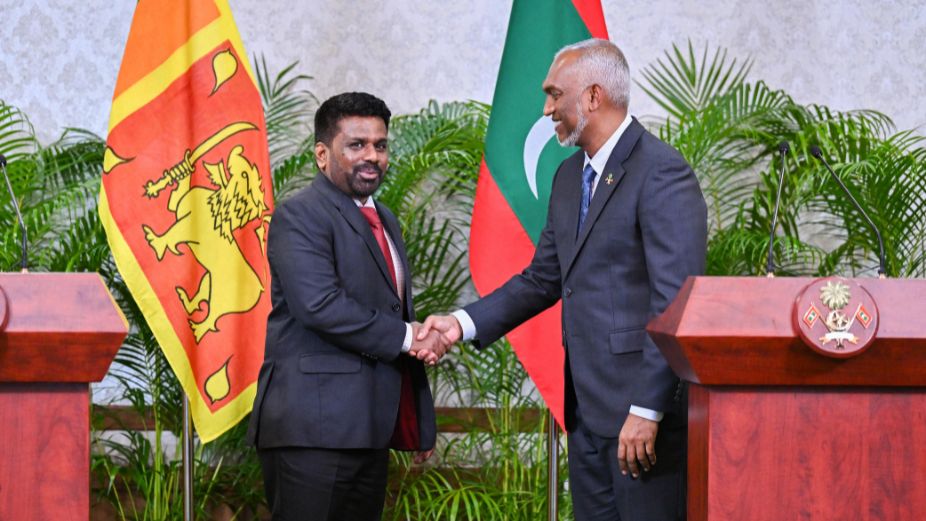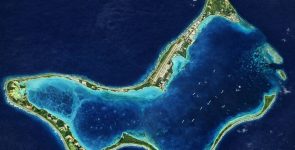
Since the election of President Mohamed Muizzu in November 2023, Maldives’ foreign policy has undergone a profound recalibration. Once known for the “India Out” rhetoric, the archipelago is now repositioning itself within the Global South as a nimble actor navigating power competition in the Indian Ocean. Recent state visits by India’s Narendra Modi and Sri Lanka’s Anura Kumara Dissanayake symbolise this shift and signal a reassertion of the Maldives’ regional agency.
India: Reset, Reform, Reengage
Narendra Modi’s state visit on 25–26 July 2025 marked a watershed moment. He attended the Maldives’ 60th Independence Day as Guest of Honour, an overture that comes after strained relations under President Muizzu’s anti-India orientation. The visit concluded with a USD 565 million line of credit for infrastructure projects, debt-relief measures reportedly easing repayment obligations by about 40 percent, and the opening of Free Trade Agreement negotiations.
The reopening of military and strategic cooperation, including India’s provision of defence vehicles and continuation of maritime security collaboration, signals a return to closer alignment. Modi also inaugurated key infrastructure such as the new defence ministry headquarters built with Indian grant aid, a testament to India’s “First Responder” role in crises. Analysts describe the visit as soft diplomacy that has reset bilateral warmth after a period of cooling.
India’s overtures are clearly strategic. As minds in Malé pivot between Beijing and New Delhi, the island state is asserting its value in maritime trade lanes and regional security frameworks such as the Colombo Security Conclave, which links Maldives, India and Sri Lanka.
Sri Lanka: Solidarity and Shared South Asian Identity

Barely days later, Sri Lanka’s President Dissanayake arrived in Malé for his first state visit since being elected in September 2024, coinciding with 60 years of diplomatic ties between the two island nations. Cultural ceremonies, ceremonial honours and policy talks highlighted bilateral goodwill, with agreements spanning trade, climate cooperation and maritime security.
Sri Lanka and Maldives, founders of SAARC alongside India, are reviving efforts toward regional integration. Both states face serious debt exposure and climate vulnerability. Cooperation on renewable energy, fisheries export and tourism linkages was emphasised.
Maldives in the Global South: A Strategic Pivot
With limited geopolitical weight of its own, the Maldives wields influence through its strategic geography. As a Global South actor, it resists being boxed in by either China or India, weaving bilateral partnerships to stabilise its economy, build resilience to climate change, and elevate its relevance in Indian Ocean affairs.
Its recent diplomacy reflects a subtle recalibration. Maldives is leveraging Indian grants and lines of credit, engaging in formal trade negotiations, and deepening security ties with both India and Sri Lanka. At the same time, Malé continues to invite Chinese investment, including Belt and Road projects launched since 2013, to preserve leverage.
Maldives today is forging what might be called a triangular diplomacy within the Global South. The state visits by Modi and Dissanayake represent not merely transactional aid or ceremony, but recognition of Malé’s evolving role as a locus of regional maritime strategy. As climate urgency and debt pressures mount, Maldives is remaking itself into a diplomatic pivot, balancing economic need, strategic autonomy and regional solidarity.












